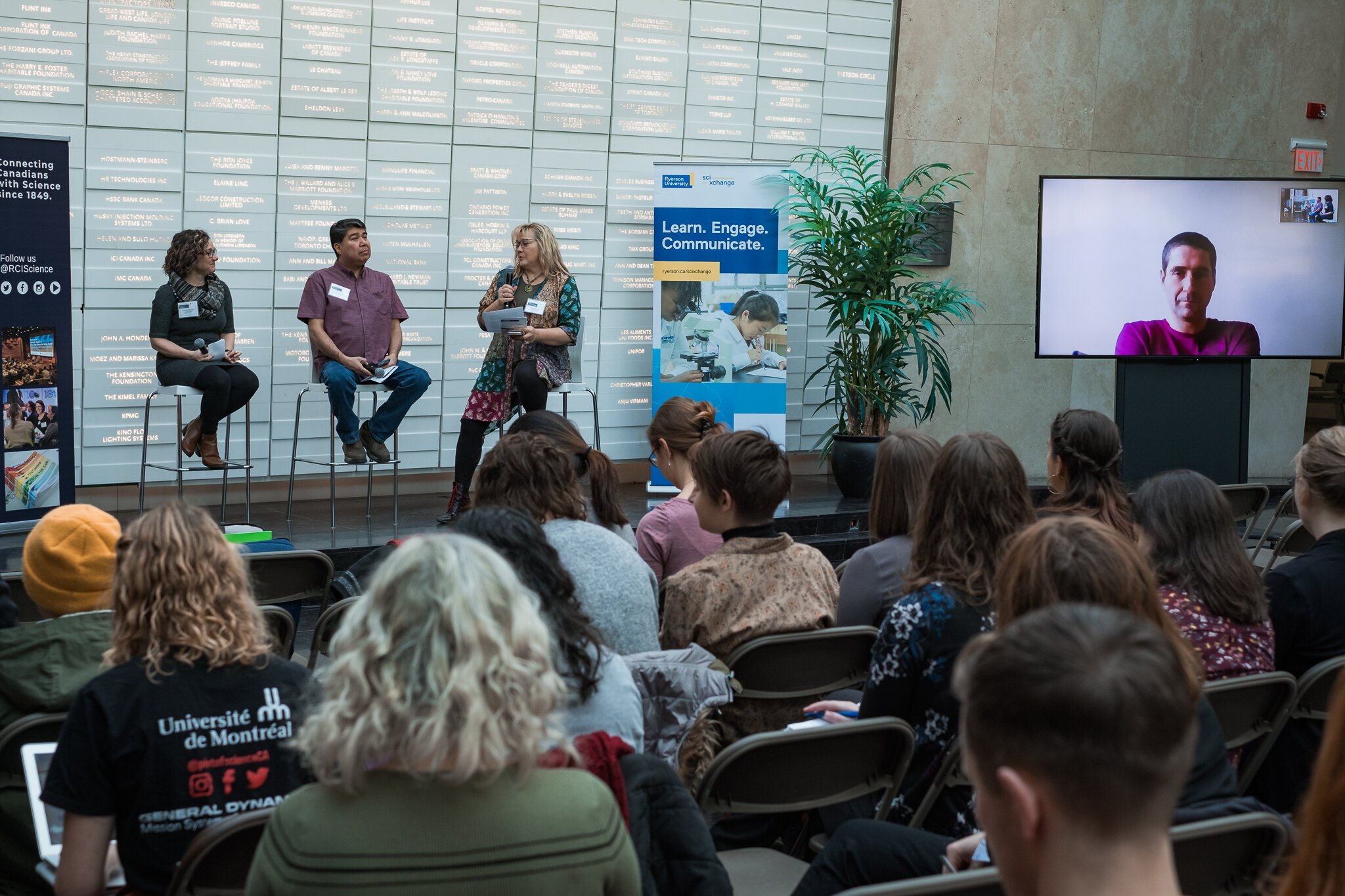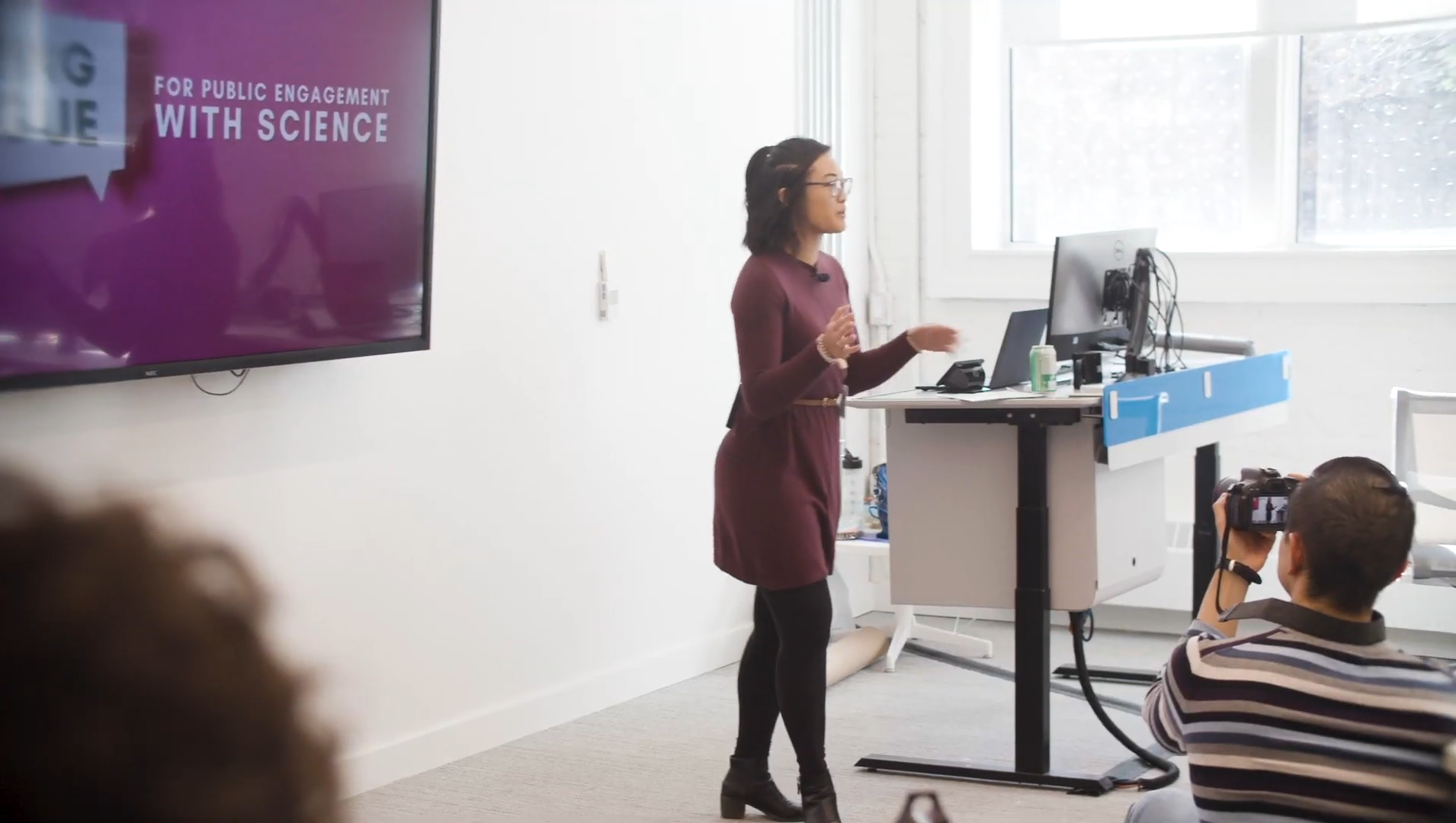SciComm 101
An introduction to the who, what, where, when, why and how of science communication.
If I Had a Million Dollars (Panel Summary)
If you had a million dollars to spend on one area of Canadian science communication, what would you spend it on? A panel discussion.
Are We Selling or Selling Out Science? (Panel Summary)
There's a natural tension between use of scientific communication by institutions and other agendas such as philanthropy. This panel addressed the issue from both sides - the need to attract awareness and support and the need to ensure what is communicated is not hyperbole or exaggeration.
How to Succeed in SciComm (Panel Summary)
Panellists share their experiences establishing careers in science communication. From consulting to writing to influencing, we explored the unusual career landscapes in science communication, and how to stand out from the crowd.
Canada vs The World (Panel Summary)
A look at the state of science communication in Canada and other countries, including the UK and US. What are some of Canada's unique challenges and opportunities, and what can we learn from our peers elsewhere?
Interviewing: The Art of Asking Questions
Top tips for getting the most out of an interview.
Fostering Dialogue for Public Engagement
How to facilitate a collaborative process for public engagement with science.
Creative Solutions to Misinformation
A novel approach to changing minds and combatting misinformation.
What's Curriculum Got To Do With It?
How to effectively engage youth in formal (school) and informal (community) settings and build a roadmap for meaningful engagement.
Scaling Your Talk
Learn how to tell the same story and convey the same message in 3 minutes or 3 hours.
Understanding Science Capital
Understand the concept of Science Capital and its importance in your approach to science communication.
Communicating with Intent
A framework to identify the values and needs of specific audiences to shape communication goals, essential messages, frames, and delivery.
Measuring Up: The Art of Evaluation
We measure what we value and we value what we measure.














